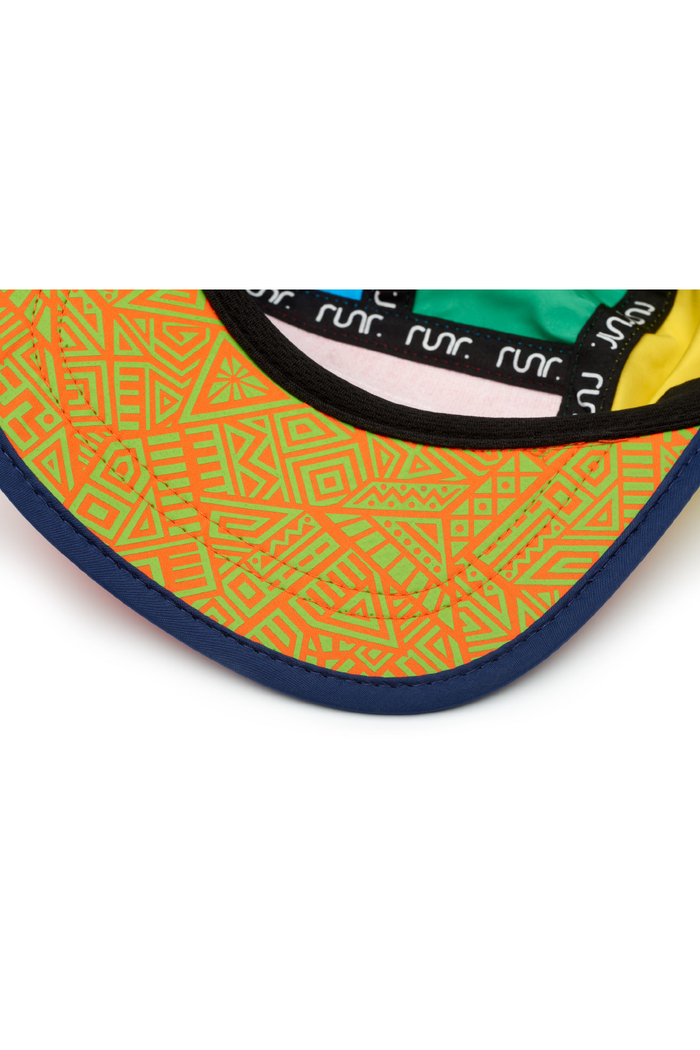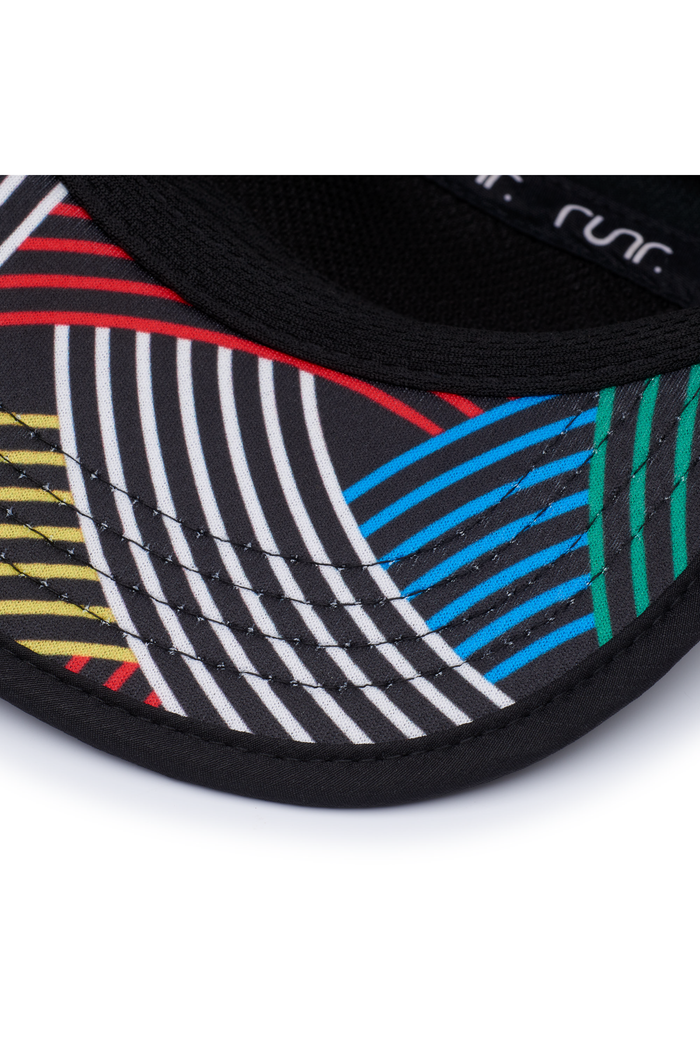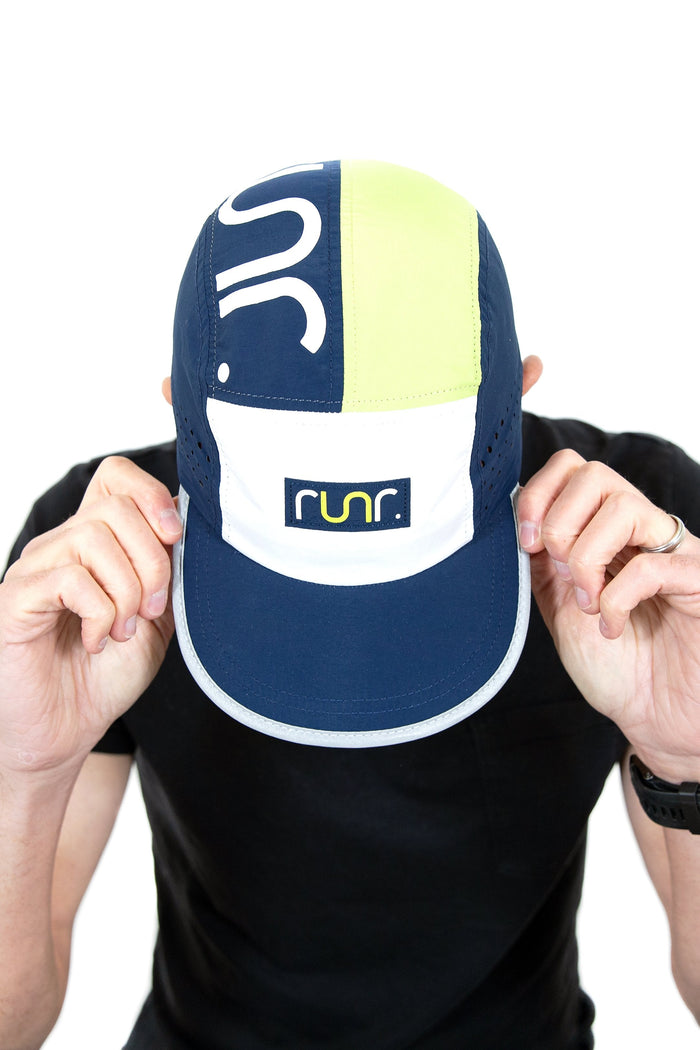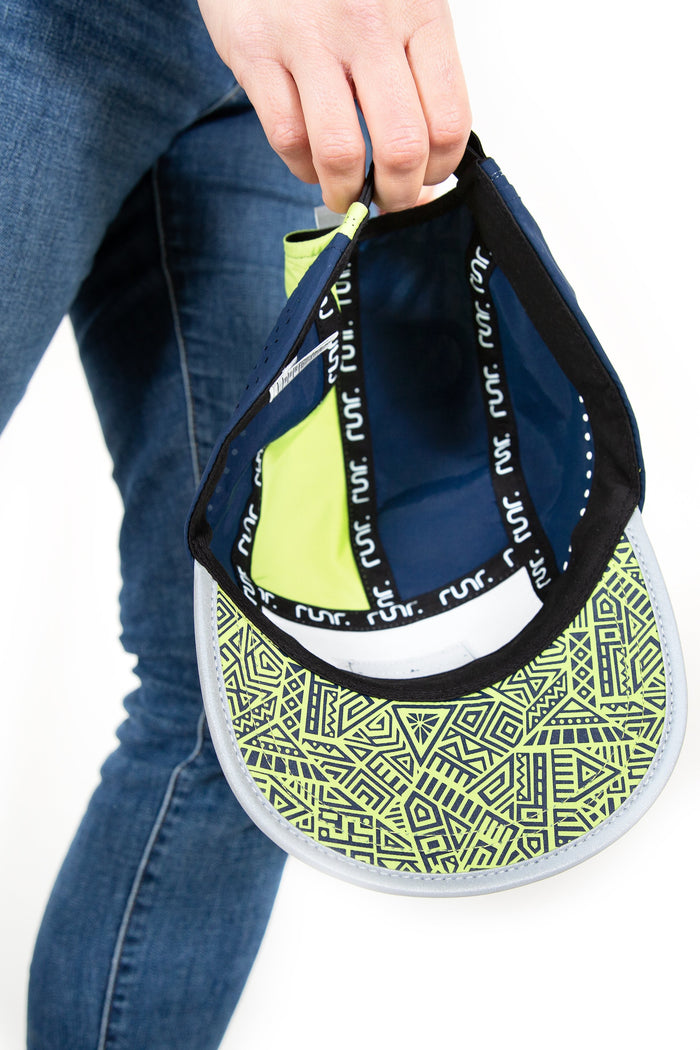It’s a question I’ve lost count of how many times I’ve been asked. Or even worse “If you can run then you can’t have M.E.”
After many years of recreational running including fell running in the Lakes and eventually doing the London Marathon in 1995 and ’96 my health began to deteriorate in 2005. I began to have a lot of digestive problems, prolonged bouts of joint and nerve pain, couldn’t concentrate, couldn’t sleep and was exhausted the whole time. Throughout it all I still ran. Only short periods but it’s something that helped my sanity.
After years of being told it was simply stress and IBS by various GPs I eventually ,and luckily, had an appointment with a locum GP who had had ME himself and was prepared to start some further tests. It took two years of CT scans, barium meals, blood drainage and test to eventually get a diagnosis of ME (Myalgic Encephalomyelitis) often called Chronic Fatigue.

There’s not much support or treatment. I was simply told to explore decent nutrition and do what they called paced exercise (the goal being to do 20 mins of exercise a day no matter how bad I felt, just change the intensity of the 20 mins)…and to stop having naps during the day as they will begin to get longer and longer and take over.
By this point I was walking with two sticks and 20 mins was walking/staggering to the front gate and back.
But I was determined. I made mistakes. Plenty of them. ME is great at making you pay if you push it too hard. One day you might feel a bit better than ‘normal’ so you do too much. The following day the ME says “aha now you are going to pay for that” and you spend the time so fatigued that you can lift a mug, or make it up the stairs to the loo.
I’ve now had ME for 14 years. It took the first two years to stop comparing myself to the me before ME. I then began to work with it rather than fight against it. I decided that if I was going to be fatigued and in pain all the time I may as well do something with it. It took 5 years of pain and tears to take part in a slow London Marathon in 2011 dressed of course as HeMan (after all why wouldn’t you).

Since then I’ve taken part in Tough Guy and Tough Mudder amongst other obstacle races. Run Man vs. Mountain, Man vs. Lakes, the RatRace Coast to Coast (Cycle, run and kayak), and recently a couple of 100km ultras/24 hour events. Most will involve tears at some point and enough Ibuprofen to warrant having shares in their production. It’ll take weeks to recover afterwards, and training for them involves no more than 3 runs a week as I need to make sure I get enough recovery time in between.
To add to all this, four years ago I also got a diagnosis of High Functioning ASD, previously known as Aspergers. With this running makes even more sense. Life is hard, stressful, noisy and confusing when you are moving through it with Aspergers. Normal social rules are hard to achieve. Running for me is an escape to peace. The trainers go on even if the ME part of me is trying to tell me not to go out, because I know I’ll feel better for a short period whilst out in the fields, gasping in fresh air, away for the very peopley world.

Running with ME of course has many challenges.
As previously mentioned training for a race is hard as there’s no way I can do a ‘normal’ training plan: I can’t do the kind of mileage in training that most would say to do before an ultra. Before do an ultra I can’t do more than 20 miles a week. The race has to be all about mental strength. I’m used to living with pain, being in pain probably 80% of my time, so maybe ultra runs aren’t adding much to a normal day! The difficulty of course is trying to spot what is ME pain and what is injury pain. It’s not easy.
Anything over 3 miles I run with my light weight ultra-poles. These definitely help not only on the hills, but the ME effects my balance so they help minimise the amount of time I spend flat out in the mud having fallen over.

I always run off road. The constant changing surface means I’m constantly changing pace and stride length. Straight road running is too repetitive and therefor gets painful very quickly.
I also run with an ID bracelet, and if doing a long run have even taken a note with me to pin on my chest. Now I’ll bet that got you wondering why. Well there are times when the fatigue is so much that I have to stop mid-run and have a snooze. I have a note saying that I have ME and am having a nap. This is after one time being woken up, being shaken severely by a worried dog walker thinking I’d passed out or had a heart attack.

To keep me motivated I find it really important to book at least one race a year so I have a goal to aim for. This makes sure I get out of the door even if I don’t want to. Means I will walk if I can’t run. Means I get some quiet head space simply to ‘slow down’ in a world that moves so quickly and noisily.
“But how can you run if you have M.E.?”
To those people I say, firstly make sure you understand a chronic illness before you judge. My life is severely limited by having ME. No-one would choose to have it. I have no social life. I’m in bed by 8pm each night to try to get enough sleep to simply function. 80% of my time I’m in pain. Some days I can be so fatigued I can’t chew food.

Running is my escape, my mental medicine, my drive.
You can follow my shenanigans on Instagram and YouTube @chronic_running
 Skip to content
Skip to content













